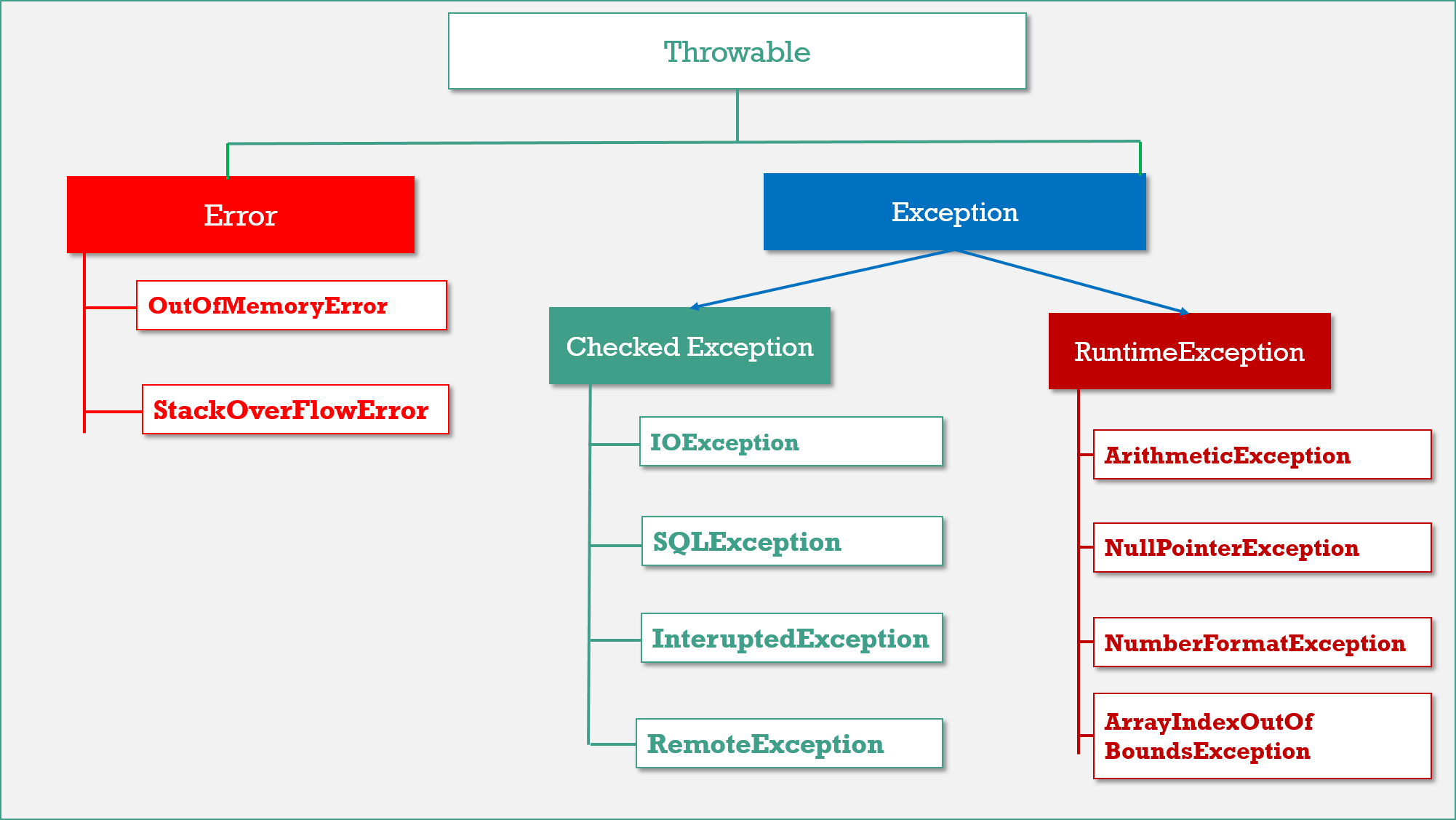Exception Hierarchy

Throwable is the parent of entire java exception hierarchy. It has 2 child classes
-
Exception.
-
Error.
1.Exception
These are recoverable. Most of the cases exceptions are raised due to program code only.
Checked Exceptions: They Cheeked by Compiler, they will check that the given resource is existed or not, they are usually occur interacting with outside resources/ network resources e.g. database problems, network connection errors, missing files etc. Java forces you to handle these error scenarios in some manner in your application code
Unchecked Exceptions: occurrences of which are not checked by the compiler like coding, initialization, Primitive data errors. They usually result of bad code in your system.Runtimeexception and its child classes, Error and it’s child classes are considered as unchecked exceptions and all the remaining considered as checked
2.Error
Errors are non-recoverable. Most of the cases errors are due to lack of system
resources but not due to our programs.
JVM +Memory+ OS level issues. OutofMemory, StatckOverFlow
Partially Checked Vs Fully Checked
A checked exception is said to be fully checked iff all its child classes also
checked.
Ex: - IOException.
A checked exception is said to be partially checked if some of it’s child
classes are not checked.
Ex: - Exception, Throwable.
No. of ways to find details of the exception
1.Using an object of java.lang.Exception
try
{
int x=Integer.parseInt ("10x");
}
catch (Exception e)
{
System.out.println (e); //
}
java.lang.NumberFormatException : for input string 10x
<name of the exception> : <nature of the message>
2.Using printStackTrace method
e.printStackTrace (); // java.lang.ArithmeticException : / by zero : at line no: 4
name of the exception || nature of the message || line number
3.Using getMessage method :
System.out.println (e.getMessage ()); // / by zero
nature of the message